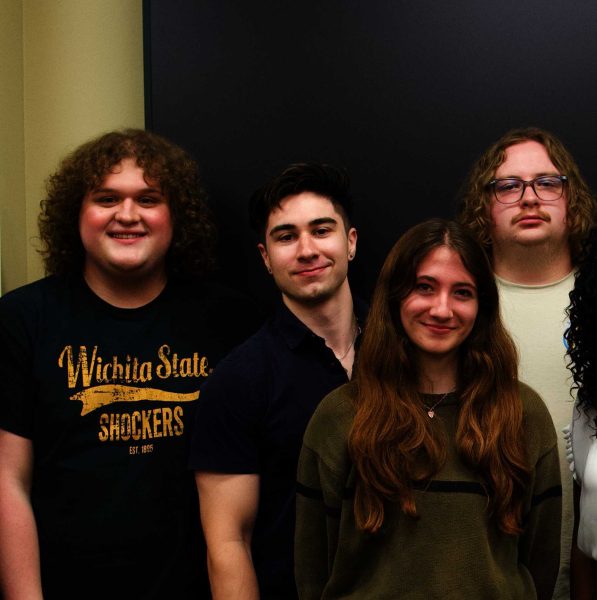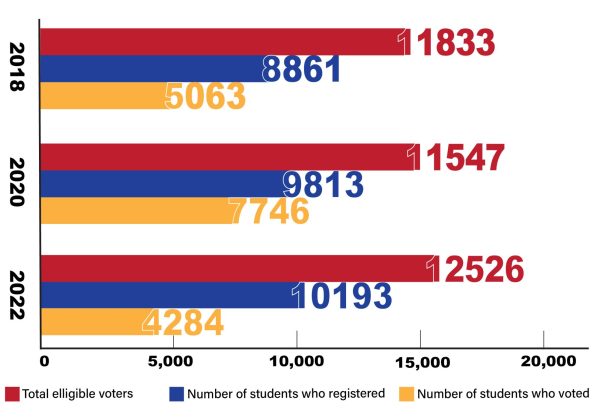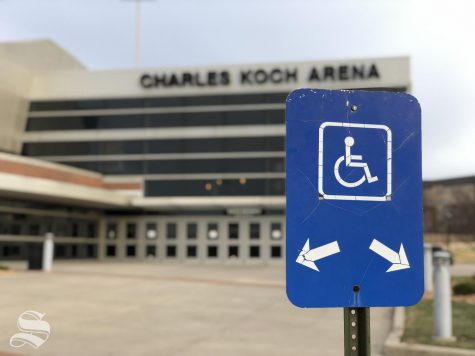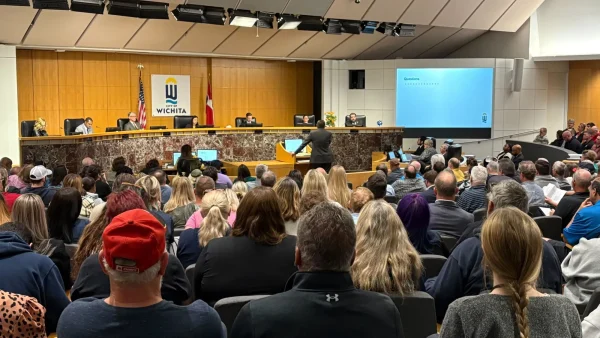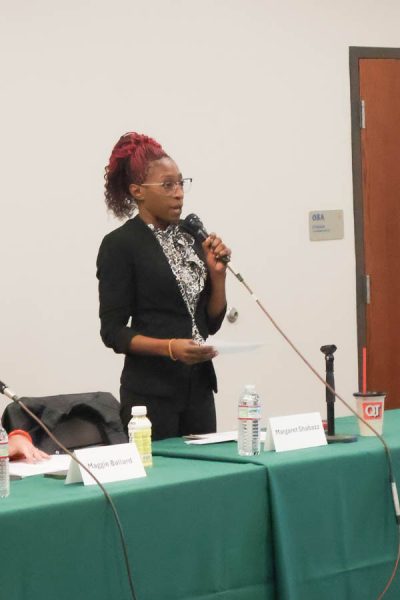NASA Space Apps hackathon localizes a global challenge
Courtesy of Waruna Seneviratne
Competitors, judges, and mentors pose for a photo at the conclusion of the SpaceApps Challenge. Over the span of two days, competitors rushed to solve a series of problems with prizes on the line.
Space Apps hackathon, a global challenge, reached Wichita this week and was held at National Institute for Aviation Research’s (NIAR) Advanced Technologies Lab for Aerospace Systems (ATLAS).
The hackathon is a series of challenges presented by NASA. Each team involved picked a different challenge and competed to propose the best solution for it. For this event, they were given special access to data directly from NASA.
Wichita State students from all colleges competed.
“This is not an engineering-only challenge. There are business majors, art majors,” Waruna Seneviratne, director of NIAR ATLAS said.
The entries from Wichita competed with entries from across the globe. The first-place winner of the global challenge gets to go to NASA headquarters and receive a guided tour as well as watch a launch sequence.
“We wanted to put Wichita on the map in the global challenge, so people can be curious about what’s happening [here],” Seneviratne said. “And to also market NIAR, our capabilities to some of these students.”
The challenge ended on Oct. 2, with a team of one taking first place. Jacob Workentine won the 2022 Space Apps hackathon and will be taking a trip to Dassault Systemes as his prize, as well as a $500 gift card and a pair of AirPods.
“As the only non-STEM major in the competition and the only team of one, it kind of felt like the odds were stacked against me,” Workentine said. “I’m still in disbelief about this weekend and can’t wait to see where this idea will lead me to.”
His project was a fully illustrated children’s book with an accompanying video, telling the story of Parker, the solar probe. Workentine said his inspiration came from “Reading Rainbow.”
The second-place team, Space Jam, was treated to a $500 gift card as well as an all-expenses paid trip to Dassault Systemes. The team was made up of Grant Johnson, Murphy Ownbey, Greg Heinman, Akim Niyonzima, Dimitri Seneviratne and Fernando Rubio Garcia..
Their project aimed to bring attention to the correlation between the rise of natural disasters because of climate change and the employment statistics of the US. They hope to use the data to predict natural disasters and show trends of previous years.
The third place team, Ami Goto, Kanzune Tazawa, Ali Ito, Franseria Maldonado Mundo, Kubeshavarsha Kalithasan, 5 Lunastranauts, all received pairs of AirPods.
This team attempted to make a map of moonquakes in preparation for potential colonization. The team focused on making sure the maps were easy to understand.

Maleah Evans is the arts and culture editor for The Sunflower for Fall 2025. Evans previously served as the arts and culture editor in Spring 2025. This...




